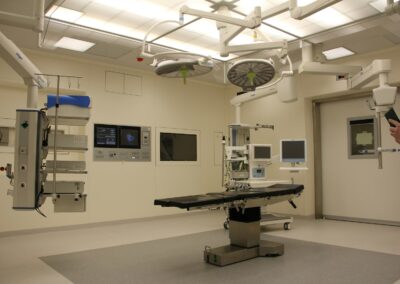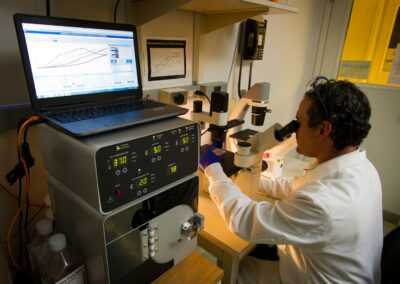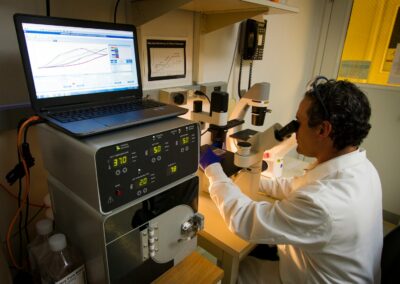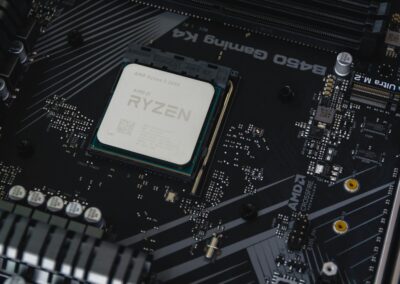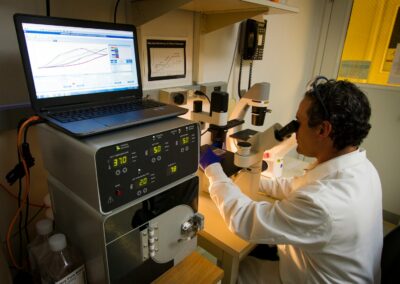Revolutionizing Healthcare Access with Cognitive Technology
Expanding Healthcare Reach with Cognitive Computing
Cognitive computing in remote healthcare is transforming the landscape of medical diagnostics, particularly in underserved and remote regions. This advanced technology utilizes artificial intelligence (AI) to enhance the accuracy and efficiency of diagnostic tools, making healthcare more accessible to populations in areas where medical resources are limited. In Saudi Arabia, the UAE, and other regions with expansive rural areas, cognitive computing presents a valuable opportunity to bridge the healthcare gap and improve patient outcomes.
Traditional diagnostic methods often rely on specialized equipment and medical expertise that may not be available in remote locations. Cognitive computing addresses this challenge by providing intelligent systems that can process and analyze medical data remotely. For instance, AI-driven diagnostic tools can analyze medical images, such as X-rays or MRIs, and identify abnormalities with high precision. This capability allows healthcare providers in remote areas to make accurate diagnoses without the need for immediate access to advanced medical facilities.
Moreover, cognitive computing facilitates telemedicine solutions, enabling real-time consultations between patients and healthcare professionals. Through telemedicine platforms powered by AI, patients in underserved areas can receive expert advice, follow-up care, and treatment recommendations without traveling long distances. This integration of cognitive technology enhances healthcare accessibility and ensures that patients receive timely and effective care.
Enhancing Diagnostic Tools for Remote and Underserved Areas
The development of diagnostic tools using cognitive computing is a game-changer for healthcare in remote regions. These tools are designed to operate efficiently in environments with limited resources and infrastructure. AI-powered diagnostic systems can analyze patient data, such as medical records and lab results, to provide accurate diagnoses and treatment options.
One of the key benefits of cognitive computing is its ability to learn and adapt over time. AI systems can continuously improve their diagnostic accuracy by analyzing large datasets and incorporating new medical knowledge. This adaptability is particularly valuable in remote areas where access to updated medical information and training may be limited. For example, cognitive computing can enhance the capabilities of portable diagnostic devices, allowing them to deliver reliable results even in challenging conditions.
Furthermore, cognitive computing supports the development of mobile health applications that can assist in remote diagnostics. These applications leverage AI algorithms to analyze health data collected through wearable devices, such as smartwatches or fitness trackers. By providing real-time insights into a patient’s health status, these applications enable proactive management of chronic conditions and early detection of potential health issues.
Improving Healthcare Outcomes Through Cognitive Solutions
The integration of cognitive computing in remote healthcare not only enhances diagnostic capabilities but also improves overall healthcare outcomes. By providing accurate and timely diagnoses, AI-powered tools help prevent the progression of diseases and reduce the need for emergency interventions. This proactive approach to healthcare is especially beneficial in areas where medical resources are scarce and timely treatment is crucial.
Additionally, cognitive computing supports the training and education of healthcare providers in remote regions. AI-driven platforms can offer virtual training modules, simulation exercises, and access to medical literature, helping healthcare professionals stay informed about the latest developments in their field. This continuous learning ensures that providers in remote areas are equipped with the knowledge and skills needed to deliver high-quality care.
For business executives and entrepreneurs in Saudi Arabia and the UAE, investing in cognitive computing for healthcare presents an opportunity to contribute to social impact while driving technological innovation. By supporting the development and deployment of AI-powered diagnostic tools, organizations can enhance healthcare access and quality in underserved regions, aligning with broader goals of sustainable development and community well-being.
Strategic Implementation of Cognitive Computing in Healthcare
Developing Effective AI Solutions for Remote Healthcare
To leverage cognitive computing effectively in remote healthcare, it is essential to develop AI solutions that are tailored to the specific needs of underserved areas. This involves designing diagnostic tools and telemedicine platforms that are user-friendly, reliable, and capable of operating in low-resource environments. Collaboration between technology developers, healthcare professionals, and local communities is crucial to ensure that these solutions address the unique challenges faced by remote populations.
One approach to developing effective AI solutions is to conduct pilot programs and field trials in targeted regions. These trials can provide valuable insights into the performance of cognitive computing tools in real-world settings and help identify areas for improvement. Additionally, engaging with local healthcare providers and patients during the development process ensures that the solutions are practical and meet the needs of the community.
Furthermore, it is important to consider the integration of AI solutions with existing healthcare infrastructure. Cognitive computing tools should complement and enhance current practices rather than replace them. For example, AI-powered diagnostic systems can work alongside traditional methods to provide additional support and accuracy. By integrating these technologies seamlessly, healthcare organizations can maximize their impact and effectiveness.
Addressing Challenges and Ensuring Sustainability
While the benefits of cognitive computing in remote healthcare are significant, there are also challenges that must be addressed to ensure successful implementation. One of the primary challenges is ensuring the reliability and security of AI systems in remote environments. Robust measures must be in place to protect patient data and ensure the accuracy of diagnostic results.
Additionally, it is important to address issues related to technology adoption and user training. Healthcare providers and patients in remote areas may need support and education to effectively use AI-powered diagnostic tools and telemedicine platforms. Providing comprehensive training and technical support is essential to ensure that these technologies are utilized effectively and deliver the intended benefits.
Finally, sustainability is a key consideration for the long-term success of cognitive computing initiatives in healthcare. Organizations must develop strategies to maintain and update AI systems, ensure ongoing training for healthcare providers, and monitor the impact of these technologies on healthcare outcomes. By addressing these challenges and focusing on sustainability, businesses and healthcare organizations can ensure that cognitive computing continues to drive positive change in remote and underserved areas.
Conclusion: Advancing Healthcare Access with Cognitive Computing
Cognitive computing has the potential to revolutionize healthcare in remote and underserved areas by enhancing diagnostic capabilities and expanding access to medical services. By leveraging AI-driven tools and telemedicine solutions, businesses and healthcare organizations in Saudi Arabia, the UAE, Riyadh, and Dubai can improve patient outcomes and address critical healthcare challenges. The strategic implementation of cognitive computing, combined with a focus on reliability, user training, and sustainability, will ensure that these technologies deliver meaningful benefits and contribute to a more equitable and effective healthcare system.
#CognitiveComputing #RemoteHealthcare #AI #DiagnosticTools #HealthcareInnovation #SaudiArabia #UAE #Riyadh #Dubai #ModernTechnology #BusinessSuccess #Leadership










